Various weather agencies have been warning that this summer’s temperatures may very well break previous heat records. Higher than normal heat will result in increased consumer demand that will push an aging electrical infrastructure beyond its limits, leading to rolling blackouts. If your area is impacted by temperatures and grid problems this summer, will you be ready? In this video, I will cover ten ways to stay cool when the power goes out, so let’s jump in.
1 – SHADE
 Hide away from the sunlight and seek shade. Keep your house’s windows closed and blinds shut during the day so long as the temperature outside is hotter than the temperature inside and while the sun is shining. After sunset, the temperature outside can drop rapidly depending on your environment, so you want to position fans to pull cool air inside. Find the coolest room in your house and set up camp there, closing off hotter rooms.
Hide away from the sunlight and seek shade. Keep your house’s windows closed and blinds shut during the day so long as the temperature outside is hotter than the temperature inside and while the sun is shining. After sunset, the temperature outside can drop rapidly depending on your environment, so you want to position fans to pull cool air inside. Find the coolest room in your house and set up camp there, closing off hotter rooms.
Hot air rises, so if you live in a 2 story house, stay downstairs. Typically, the side of the house that does not receive sunlight towards the end of the day will be the cooler side. Avoid opening and closing doors from your cool area to the outdoors. In fact, close the doors to hotter rooms that are next to the cooler areas of your home.
If you are outside, you will want to get shade and out of direct sunlight. If there is no shade, an umbrella or even a sun umbrella will be helpful.
2 – LIGHT
 Even though heatwaves are most likely to occur in the summer months when the days are long, you will still need a source of light for safety. Candles or other heat-generating sources are not good options in these situations because you don’t want to add even one more degree to your environment. Glow sticks or LED lights work effectively as they put off little to no heat compared to traditional incandescent bulbs. Lanterns are great for lighting up entire areas. Have options available and check your batteries periodically to make sure they’re ready. Even a simple handcrank radio with a light will give you the ability to produce light.
Even though heatwaves are most likely to occur in the summer months when the days are long, you will still need a source of light for safety. Candles or other heat-generating sources are not good options in these situations because you don’t want to add even one more degree to your environment. Glow sticks or LED lights work effectively as they put off little to no heat compared to traditional incandescent bulbs. Lanterns are great for lighting up entire areas. Have options available and check your batteries periodically to make sure they’re ready. Even a simple handcrank radio with a light will give you the ability to produce light.
3 – AIR CIRCULATION
 Air circulation can help to distribute the air more evenly and create a more comfortable environment by promoting the evaporation of sweat from the skin and creating a cooling sensation. Because of this, fans are essential in a heatwave. Consider small, personal fans and their energy requirements. Even a battery-operated, handheld mister fan connected to a pump water bottle can keep you cool. Consider adding ice to the bottle.
Air circulation can help to distribute the air more evenly and create a more comfortable environment by promoting the evaporation of sweat from the skin and creating a cooling sensation. Because of this, fans are essential in a heatwave. Consider small, personal fans and their energy requirements. Even a battery-operated, handheld mister fan connected to a pump water bottle can keep you cool. Consider adding ice to the bottle.
If you have portable power like a backup battery system or solar, you can run fans throughout the day without too much concern. Consider placing a bucket of ice or frozen water bottles in front of the fan to cool the air. Of course, if there is an outside breeze, and the temperatures are lower outside, open multiple windows to allow a breeze to move through your home.
4 – COOLING UNITS
 If the power goes out, so will your AC unit. If you have a backup power source such as a gas or solar generator, there are a few cooling options worth considering. On the low end of cost, evaporative air cooler fans with icepacks like the one shown here pull little power, are cheap, and are surprisingly effective at cooling you if you’re directly next to the fan.
If the power goes out, so will your AC unit. If you have a backup power source such as a gas or solar generator, there are a few cooling options worth considering. On the low end of cost, evaporative air cooler fans with icepacks like the one shown here pull little power, are cheap, and are surprisingly effective at cooling you if you’re directly next to the fan.
Of course, there are the portable AC’s you can purchase at your local hardware store like the one shown here. These do require a fair amount of power, but can effectively cool a small room. A bit more on the pricer end, but equally effective and require a reduced amount of power to operate them when comparing them to portable AC’s are units like the one shown here from Ecoflow. If you have solar panels or a portable battery system, these can be great options to set up for yourself or elderly neighbors or family members.
5 – LOOSE CLOTHING
 The looser and fewer pieces of clothes you wear in a single layer, the better. Light-colored fabrics will reflect more of the sun’s rays than darker fabrics. Choose materials that move moisture away from the body. A microfiber cooling towel that can also be worn around your neck is a great option. Fabrics like these will pull moisture away from the body. Loose-fitting clothing made of breathable fabrics like cotton or linen will allow air to circulate around your body.
The looser and fewer pieces of clothes you wear in a single layer, the better. Light-colored fabrics will reflect more of the sun’s rays than darker fabrics. Choose materials that move moisture away from the body. A microfiber cooling towel that can also be worn around your neck is a great option. Fabrics like these will pull moisture away from the body. Loose-fitting clothing made of breathable fabrics like cotton or linen will allow air to circulate around your body.
6 – HYDROTHERAPY
 Water is your best weapon against heat. When it comes to water, soaking in a cool bath or a cool shower will rapidly cool a body. If you have ice in your freezer (which will melt when the power goes out), why not use it in a bowl in front of a fan where you can soak your wrists or feet or in a bath?
Water is your best weapon against heat. When it comes to water, soaking in a cool bath or a cool shower will rapidly cool a body. If you have ice in your freezer (which will melt when the power goes out), why not use it in a bowl in front of a fan where you can soak your wrists or feet or in a bath?
Hydration is the key to survival. Drink plenty of water to avoid dehydration. You can also try other hydrating fluids like coconut water, sports drinks or powders, or fruit juices. Start drinking water at regular intervals. Don’t wait until you’re thirsty to drink. When you feel thirsty, you’re already dehydrated. Additionally, you should avoid caffeine or alcoholic drinks, as these will dehydrate you. And don’t forget your pets. Soaking them may also help them to keep cool.
7 – ICE
 Ice packs and frozen water bottles will provide cool temperatures long after the power goes out. You can place under armpits, on foreheads, necks, and wrists to cool off, and to drink as they melt.
Ice packs and frozen water bottles will provide cool temperatures long after the power goes out. You can place under armpits, on foreheads, necks, and wrists to cool off, and to drink as they melt.
Ice ingestion by crunching soft ice or sucking on ice cubes has been proven to lower body temperature, and rubbing ice cubes over pulse points like the wrist and neck can cool your body. Ice absorbs heat as it melts. Passing warm air from a fan over the ice will cause the ice to melt more rapidly, but it will also cool the air. Strategically use ice, fans, and water to create a cooling station in the coolest room of your house.
8 – KNOW YOUR AREA
 Prior to heatwaves, know where your local government may be setting up cooling centers. Many cities and towns have designated cooling centers during heatwaves, such as libraries, community centers, and other public buildings. Check with your local government or emergency management office to find out if there are any cooling centers in your area.
Prior to heatwaves, know where your local government may be setting up cooling centers. Many cities and towns have designated cooling centers during heatwaves, such as libraries, community centers, and other public buildings. Check with your local government or emergency management office to find out if there are any cooling centers in your area.
Some public spaces may have massive air conditioning or open-air spaces. Shopping malls, movie theaters, and other public buildings often have air conditioning and backup power. These places can be an excellent place to keep cool during a heatwave. Parks with large mature trees, wooded areas, and bodies of water can provide natural shade and help to cool their surrounding area. We often get rigid in our thinking that our homes are the coolest places, but that’s not always the case when the power goes out. If going out in nature is part of your strategy, ensure you have a hat and sunscreen.
9 – OPEN UP
 As soon as the sun goes down, start assessing the outside temperature. If it is cooler outside than inside, open every window and door and vent the hot air of your house. Attic fans are great for quickly exchanging the air. Place fans in windows to create cross ventilation, preferably on the east side of your house after sunset.
As soon as the sun goes down, start assessing the outside temperature. If it is cooler outside than inside, open every window and door and vent the hot air of your house. Attic fans are great for quickly exchanging the air. Place fans in windows to create cross ventilation, preferably on the east side of your house after sunset.
Before sunrise, start assessing the temperature outside again. As it begins to warm above the temperature you managed to cool your house down to, start shutting everything down again. Close windows and draw curtains.
10 – SLOW DOWN
 Avoid exercise or exertion during periods of high heat. Permit yourself to do nothing and lay low. Unless you are cooking outside, you might want to avoid cooking too as it will heat up your home. If you have food that can be warmed up quickly with hot water, like freeze dried food or easily prepared meals like MRE’s, this may be your best to avoid cooking.
Avoid exercise or exertion during periods of high heat. Permit yourself to do nothing and lay low. Unless you are cooking outside, you might want to avoid cooking too as it will heat up your home. If you have food that can be warmed up quickly with hot water, like freeze dried food or easily prepared meals like MRE’s, this may be your best to avoid cooking.
When it comes to cooking, favor fruits and vegetables that don’t need to be cooked. Many vegetables and fruits are mostly water. For instance, cucumbers are 95% water, so they can help you maintain hydration.
So much of surviving during an extreme heatwave in your home without electricity comes down to just one thing– providing our bodies the ability to regulate our core temperature. Hydration, evaporation, loose-fitting clothing, and air circulation give your body what it needs to keep cool. Because water is such a critical part of keeping cool, I will link to a video on 3 Mistakes Preppers Make When Storing Water. It may seem odd for some to talk about stored water during a heatwave because we are so used to simply turning a tap. However, prolonged and intense heat waves can degrade water quality, lower levels of available water, and create an environment where bacteria and pollutants are plentiful. If your heatwave will last for a week or more, you can’t rely solely on your municipal water supply. Most importantly, you should watch our video The World Isn’t Ready for What’s Coming This Summer, which I will also link to below. We tend to treat heatwaves as one-offs–they’re here for a few days, then they are gone, and we forget about them. This summer may be different, and the system can unravel in larger ways which you need to understand how to prepare, so please watch that video as well.
If there’s anything we didn’t cover, feel free to post your comments below as we can all learn from the community.
As always, stay safe out there.
LINKS:
8 Best Water Storage Options for Emergencies: https://www.youtube.com/watch?v=2bLHxpiZX7Q



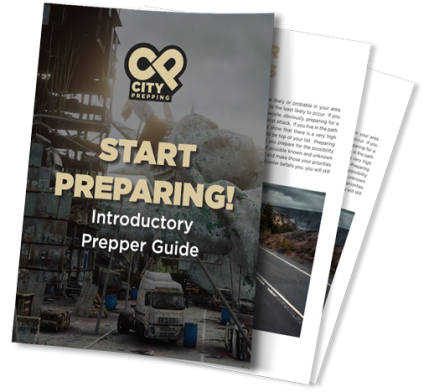

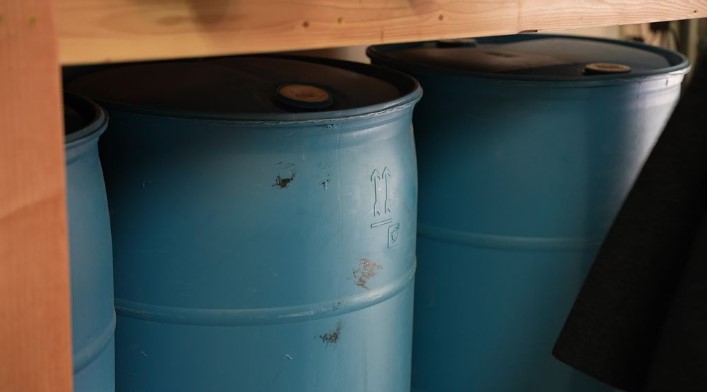
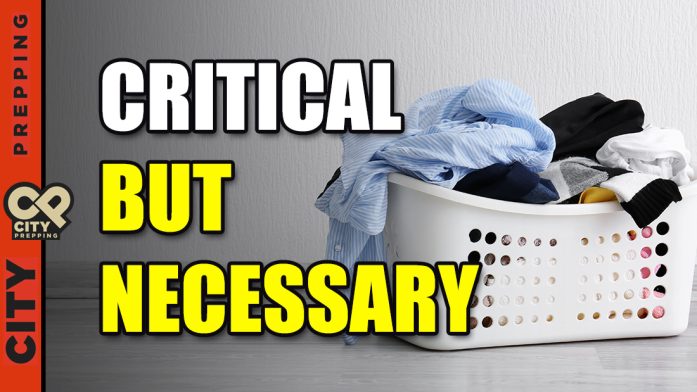
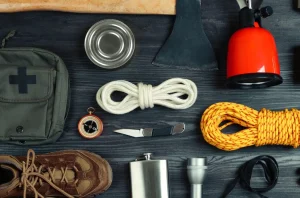
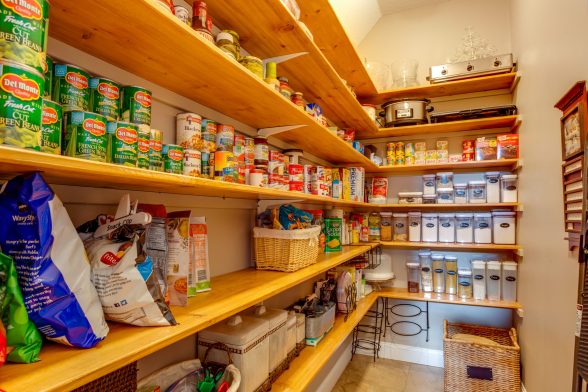
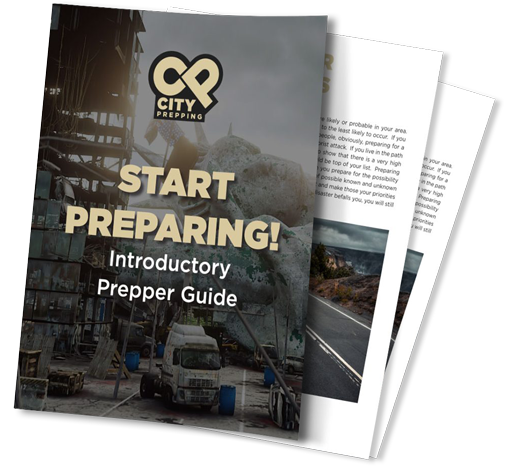
2 Responses
Before the hot weather arrives, you might want to think about getting a new air conditioner. Even though it can be expensive to buy and install a new unit, using an old and inefficient air conditioner can lead to much higher energy bills and constant repairs. So, if your unit is 10 years or older, it’s a good idea to consider getting an air conditioner replacement. It may cost more upfront, but it can save you money in the long run and give you a more efficient cooling system.
Air conditioner replacement is defenetly a way to go if your AC is old enough. However, even 10+ years old system can work just fine, if you maintained it properly.